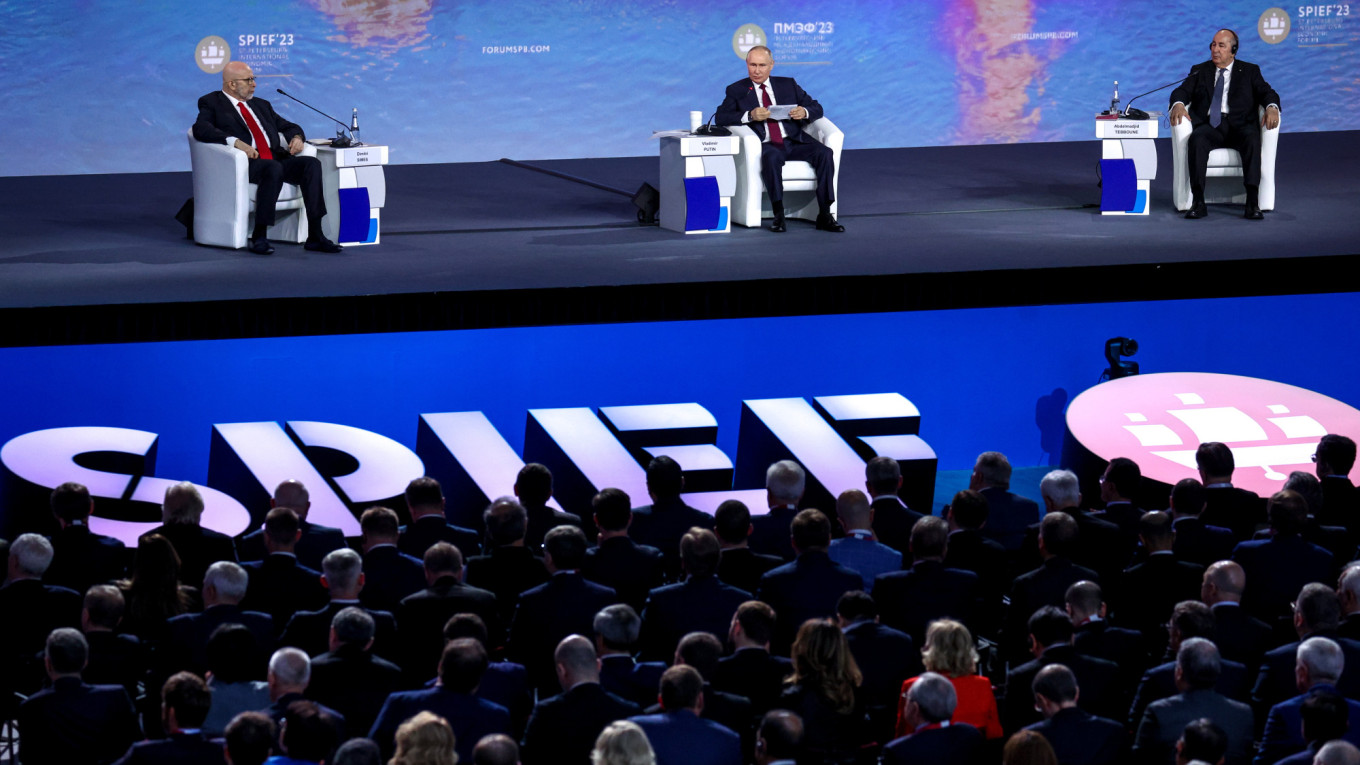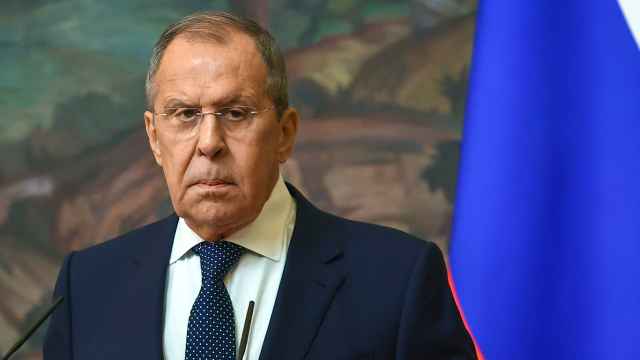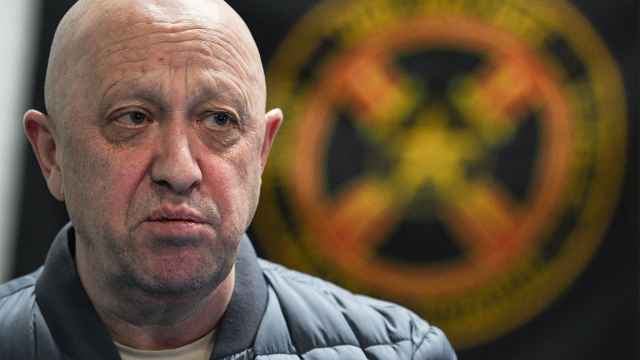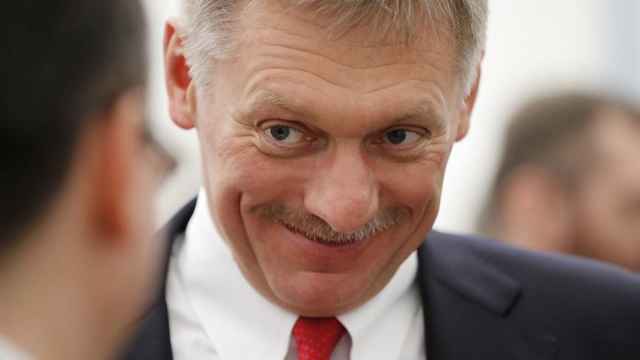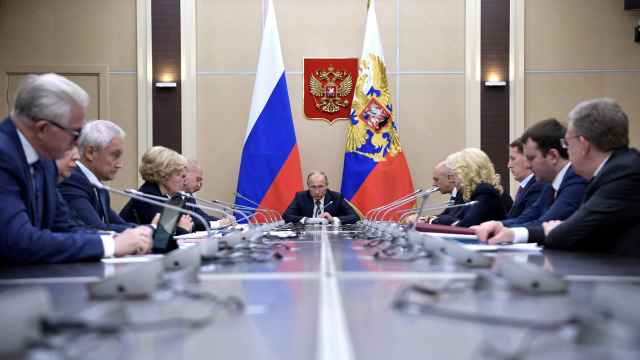This year’s St. Petersburg International Economic Forum (SPIEF), called the “Russian Davos,” culminated Friday in a plenary session with President Vladimir Putin and Algerian counterpart Abdelmadjid Tebboune.
Moderating the discussion was Dmitri Simes, a conservative U.S. political scientist and historian of Soviet origin, in another reflection of how far Russia’s standing has fallen on the world stage since the invasion of Ukraine.
Over the past decade, SPIEF’s plenary session featuring Putin has been moderated by marquee names from the Western media such as CNN’s Fareed Zakaria, then-CBS News anchor Charlie Rose and then-NBC News host Megyn Kelly.
This year, it proved impossible to attract anyone of the same profile, a government official familiar with the preparations for SPIEF told The Moscow Times, a claim confirmed by a former Kremlin official.
Both requested anonymity to speak freely, as neither was authorized in their roles to speak to the press.
"There were attempts this year to negotiate with several foreigners, but in the end, nothing worked out," the government official said.
“The list of who the Kremlin would like to see on stage with Putin even included Tucker Carlson, the former Fox News star,” said an employee of the forum’s organizer, Roscongress.
Carlson, who anchored one of the most-watched cable news programs in the U.S. before its cancellation in April, has long been a favorite of Russian propaganda for his controversial comments and promotion of conspiracy theories, as well as criticism of the Biden administration, the Democratic Party and Ukrainian officials.
Following Carlson’s ouster from Fox News, leading pro-Kremlin propagandist Vladimir Solovyov made an unsuccessful attempt to invite him on his show on the state-run Rossiya 1 broadcaster.
“The idea [to have Carlson moderate Putin’s panel at SPIEF] came up almost immediately after he was fired," the Roscongress employee said.
The Kremlin however denied that Carlson was ever in consideration for the role.
“That’s not the case at all. Carlson wasn’t even supposed to be invited,” Putin’s spokesman Dmitry Peskov told The Moscow Times.
He did not respond to The Moscow Times’ follow-up questions.
Selecting a moderator for a plenary session with whom Putin will hold dialogue is always a special task that involves the Kremlin, among others. Working out the shortlist of names always begins long before the forum, a Russian government official involved in the preparations told The Moscow Times.
"The task for this role is to find people of status and at the same time professional. Moderating is also a kind of art," the source said.
The former Kremlin official said that having a “reputable” foreigner as moderator is important to Putin because it gives “additional legitimacy” to the plenary discussion.
“It's one thing to have our [Russian] TV anchors, who will ask questions as coherent and comfortable as possible. It's another thing to have an independent person,” the former Kremlin official said.
“This is the freedom of speech that you love so much,” he added.
For past SPIEF events, the name of the host — who must spend several hours on stage with Putin in front of the Russian political and business elite and high-ranking foreign guests — was always announced in advance.
This year, SPIEF organizers dragged the announcement out to the very last minute in an effort to stir intrigue. But this effort was unsuccessful — and a few hours before the start of the plenary session, the Kremlin announced that it had chosen Simes to moderate.
Simes is considered one of the most successful Soviet-Russian émigré experts. In recent years, he has co-hosted a political show on Russian state broadcaster Channel One. He previously headed the Center for the National Interest think tank in Washington, published the conservative magazine The National Interest, and appeared in the Mueller report on alleged Russian interference in the 2016 U.S. presidential election.
During Friday’s plenary session, Simes steered clear of any questions that could have challenged Putin and repeatedly voiced pro-Russian, anti-Ukrainian sentiment.
“His job there is to play the role of the ‘model American,’ to show viewers that there is another, ‘normal’ America. So he’s been thanked and promoted to the honorary role of moderator,” an old acquaintance of Simes told The Moscow Times.
The Russian president sometimes likes to engage in polemics, such as with Bloomberg editor-in-chief John Micklethwait, whom Putin called a “provocateur” during the SPIEF plenary session in 2018.
However, with the ongoing war in Ukraine, an independent and out-of-control moderator could have posed a problem, officials admitted.
"The president likes to spice up the discussion, but he probably has a certain limit to his sensitivity, too,” a Russian government official said.
“If they start saying there that he's a war criminal and that he should go to The Hague...I don't know what his reaction would be.”
A Message from The Moscow Times:
Dear readers,
We are facing unprecedented challenges. Russia's Prosecutor General's Office has designated The Moscow Times as an "undesirable" organization, criminalizing our work and putting our staff at risk of prosecution. This follows our earlier unjust labeling as a "foreign agent."
These actions are direct attempts to silence independent journalism in Russia. The authorities claim our work "discredits the decisions of the Russian leadership." We see things differently: we strive to provide accurate, unbiased reporting on Russia.
We, the journalists of The Moscow Times, refuse to be silenced. But to continue our work, we need your help.
Your support, no matter how small, makes a world of difference. If you can, please support us monthly starting from just $2. It's quick to set up, and every contribution makes a significant impact.
By supporting The Moscow Times, you're defending open, independent journalism in the face of repression. Thank you for standing with us.
Remind me later.



